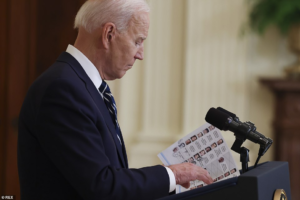
![]() With a population of approximately 1.2billion people India is currently the third largest oil-consumer. As we entered the new year India was expected to be a major driver of oil demand recovery as economies opened and the world got moving again. However, the pandemic situation in India has deteriorated considerably over the last few weeks and the current 7-day average new coronavirus cases in India is just shy of 300,000 per day.
With a population of approximately 1.2billion people India is currently the third largest oil-consumer. As we entered the new year India was expected to be a major driver of oil demand recovery as economies opened and the world got moving again. However, the pandemic situation in India has deteriorated considerably over the last few weeks and the current 7-day average new coronavirus cases in India is just shy of 300,000 per day.
Ironically the situation in India has ![]() markedly deteriorated after on March 7th the country declared it was in the “end game of the Covid-19 pandemic in India.” A new double mutant variant has emerged in a devastating coronavirus second wave which has seen hospitals run out of beds and oxygen. A black market has emerged in oxygen canisters. Bodies are being left to decompose at home.
markedly deteriorated after on March 7th the country declared it was in the “end game of the Covid-19 pandemic in India.” A new double mutant variant has emerged in a devastating coronavirus second wave which has seen hospitals run out of beds and oxygen. A black market has emerged in oxygen canisters. Bodies are being left to decompose at home.
Large election rallies and a religious festival [Kumbh Mela] which attracted over 3.5 million devotees have been a big contributing factor to the recent wild and uncontrollable spread.
The situation is so dire that Covid will probably kill more people in 2021 than it did last year. The pandemic death toll in the country is likely to be many times higher than official figures suggest. This is a human tragedy.
This is also going to have a serious implication for the global oil industry. India was forecast by many to be one of the fastest growing nations in 2021 as the world bounced backed from the Covid induced recession. However, this is not the case and due to this oil demand is considerably lower than expected. Earlier this year, oil demand projections for 2021 in India were above or close to pre-pandemic levels. These have all now been revised considerably lower and there are expectations of further negative revisions imminent.
Reports suggest that the combined consumption of diesel and gasoline in India this month is poised to plunge by as much as 20% from March, as cities become eerily quiet. There had been increased diesel and gasoline consumption as people switched from public transport to private cars but as cities enter unofficial lockdowns this boost is expected to vanish. Trucking and buses have seen their business halve further impacting fuel demand.
Refinery runs are expected to fall due to the contraction in demand, leading to a build-up in crude stockpiles that will limit future purchases even after the situation improves.
This has led to the world’s biggest oil producers to begin examining their options on how best to address this mess. The OPEC+ group, which consists of countries like Saudi Arabia, Iraq, the UAE and Russia had been highly expectant of a surge in demand to support crude oil prices and an easing of record output cuts. It may have to think again.
They met earlier this month and had agreed to a schedule for relaxing their output cuts between May and July. There had been suggestions that the group intended to add 2.14 million barrels a day to global supplies over those three months. However, given the deterioration in the situation it seems those plans might have to be revised further out. We can expect more clarity regarding this matter following their next monthly meeting later this week.
Any such cut is most likely to affect Middle Eastern producers.This is because it takes five to six days to ship a cargo of crude from the Persian Gulf to India compared to six weeks to ship from the Gulf of Mexico. There a decision by India to reduce / cut their purchases from US producers wouldn’t be felt in reduced volumes arriving into its storage tank until June. Whereas a decision to reduce volumes arriving from the Middle Eastern supplies could be felt before the end of the month.
The OPEC+ group has already delayed reducing its output cuts from January to July. A slump in India’s oil demand will make that more difficult, forcing them to either delay increasing supply or risk negatively affecting oil prices. Either way the picture for oil doesn’t look too bright in the near-term.





